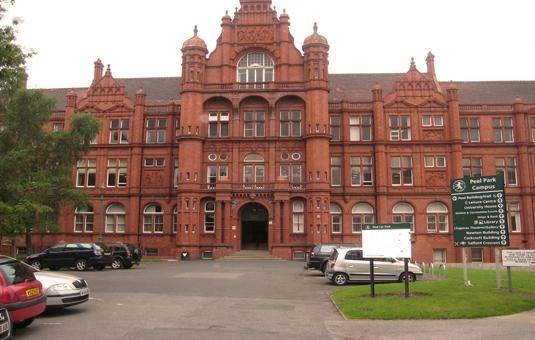
Oxford University’s acceptance rate is a direct reflection of its elite status. The university is one of the most famous institutions of learning; it has maintained a reputation of being one of the most prestigious places of learning.
Its prestige also comes from its age; this institution’s history goes back to 1096; making it the oldest university in the English speaking world, and world’s second oldest in continuous operation.
Given the chance, everybody would go to oxford. That cannot be the case, which explains why the university has a strict admission policy as shown by the acceptance rate.
What is Oxford University Acceptance Rate?
Oxford University’s acceptance rate currently stands at 14% for undergraduates, and 17% for graduate students. The university usually has 3,300 places open for undergraduates, and 6,000 for graduates every year. However, in the last year, it received 24,000 undergraduate applications, and 37,000 graduate applications.
This means around 86% of undergraduate applications were rejected; meaning that Oxford is one of the toughest schools to enter, anywhere in the world. Nevertheless, the university’s reputation for excellence makes it continually attractive to students.
Sometimes, applications may be rejected even when the applicant has followed the normal procedure, while other times applications may be rejected because they have not followed the due process. But what is the correct way to apply to Oxford?
How To Apply To Oxford University
Oxford university is a British university, and so admissions are through the Universities and Colleges Admissions Service (UCAS). The standard way is to visit the UCAS website; https://www.ucas.com and filling the online form.
The form should be filled a year before the intended time when the applicant hopes to start his studies. The applications usually open in May, and can be completed by September. Oxford University has a deadline of 15th October.
It is important to restate that the deadline of 15th October is earlier than other UK universities; therefore, prospective students must not be misled by the closing dates of other universities. Instead, they must keep in mind the fact that this university has an earlier closing date.
Before starting the application process, it is important to choose what course you want to study. Most students apply for 2 or more universities at the same time. If that is the case, please be aware that you cannot apply to Oxford and Cambridge at the same time. Doing so will result in an automatic disqualification.
After selecting Oxford University at the UCAS website, and selecting your course of choice, it is important to pay attention so as to ensure that you meet the requirements for the particular course you intend to study. Failing to meet the requirements will lead to disqualification.
Decide whether to make an open application, or whether to apply for a particular college or faculty. The advantage of open applications is that when students make this type of application, they are simply in colleges that have received fewer applications for the year.
Important Things That Go Along With The Application
Applicants to Oxford University will be required to provide their basic details; including name, date of birth and email. The email is the primary form of communication between the applicant and the university. The email you provide must be one that you check regularly so as not to miss the communication from the university.
A Personal Statement detailing your personality, ambition, and reason for choosing to study the particular course at Oxford.
Details about your education, including what other courses you have previously studied. Please note that you are not to send any certificates yet. Just provide the details.
Your Reference; which should be someone who knows you well, and who knows your academic history. Your teacher is usually a good fit for this.
Your application fee. Applications that are not accompanied by the application fee are null and void. Thankfully, the application fee is only £75 for standard application. The fee is nonrefundable.
Will There Be Tests?
For most courses at Oxford University, the answer is yes, there will be tests. However, said tests are not usually part of the UCAS registration process. The procedure for the tests are usually communicated to applicants at a later date, which is why you have to check your email regularly.
These tests are done online; students are encouraged to include some basic computer training as part of their preparations for the tests.
What Courses Are The Most Famous At Oxford
Oxford University is a world famous institute of learning; but as always, some courses become very popular at certain universities, may be because the structure of the institution was designed to put those particular courses first.
Other times, a school may become famous for certain courses because its products may become eminent in those fields – leading to more students trying to get admission to study that particular course, with the hopes of becoming like the eminent person.
What is Oxford University famous for?
The Arts. Oxford University has produced so many famous writers, actors, and media moguls. The university is also a great place to study administration or any course leading to a career in politics which is another area where the university has produced many notable people.
Oxford University has also been making giant strides in science; it has produced several great scientists over the course of the last few decades.
What Are The Courses Available At Oxford?
Archaeology and Anthropology
History and English
Asian and Middle Eastern Studies
Biology
Biomedical Sciences
Chemistry
Physics
Classics
Classics and Asian and Middle Eastern Studies
Classics and English
Computer Science
Computer Science and Philosophy
Classical Archaeology and Ancient History
Earth Sciences (Geology)
Economics and Management
Biochemistry (Molecular and Cellular)
Engineering Science
English Language and Literature
European and Middle Eastern Languages
Classics and Modern Languages
Foundation Year (Chemistry, Engineering and Materials Science)
Foundation Year (Humanities)
Foundation Year (Law)
Fine Art
Foundation Year (PPE)
Geography
Classics and Modern Languages
English and Modern Languages
History
History and Economics
History and Modern Languages
History and Politics
History of Art
Human Sciences
Law (Jurisprudence)
Materials Science
Mathematics
Mathematics and Computer Science
History (Ancient and Modern)
Mathematics and Philosophy
Medicine
Medicine (graduate entry)
Modern Languages
Modern Languages and Linguistics
Mathematics and Statistics
Music
Philosophy and Modern Languages
Philosophy, Politics and Economics (PPE)
Psychology, Philosophy and Linguistics
Philosophy and Theology
Physics and Philosophy
Psychology (Experimental)
Religion and Asian and Middle Eastern Studies
Theology and Religion
How Are The Courses Organized?
The University of Oxford is a Collegiate University. That means the academic activities are structured under different colleges, loosely making up the university system. Each college has the responsibility of teaching the students the various courses.
Since the tutorship is actually done by the colleges, it is the colleges that one should technically first belong to. Being a student of Oxford University is therefore dependent on being a member of any of the various colleges.
There are 30 colleges that make up this institution, and notably their names are not synonymous with what they teach – instead, they have more cultural sounding names. They are listed below:
All Souls College
Balliol College
Exeter College
Green Templeton College
Brasenose College
Harris Manchester College
Hertford College
Jesus College
Keble College
Pembroke College
Lady Margaret Hall
Linacre College
Christ Church
Lincoln College
Magdalen College
Kellogg College
Mansfield College
Merton College
New College
Corpus Christi College
Oriel College
The Queen’s College
Reuben College
St Anne’s College
Nuffield College
St Antony’s College
St Catherine’s College
St Cross College
Wolfson College
St Edmund Hall
St Hugh’s College
St John’s College
St Peter’s College
St Hilda’s College
Somerville College
Trinity College
University College
Wadham College
Worcester College
Blackfriars Hall
Regent’s Park College
Campion Hall
Wycliffe Hall
The halls and colleges are not the only things that one will find interesting at Oxford University; the institution is filled with exciting monuments which are not only there for the sake of beauty, but also to add value to the learning experience.
Notable Monuments At Oxford University
1. University Museum of Natural History
This museum is one of the most important zoological museums in the world. It houses the most complete skeleton of a dodo to be found anywhere in the world. It also houses skeletons of the skeletons of a Tyrannosaurus rex and Triceratops.
2. Pitt Rivers Museum
Pitt Rivers Museum at Oxford University is a very large museum; it holds 500,000 pieces, which are anthropologically important. This is a great place to study the similarity of cultures around the world.
3. Ashmolean Museum
This is the oldest museum in the UK, and the oldest university museum in the world. It has a significant collection of art works, including paintings from all the great artists.
4. Library System
Oxford University has the largest library system in the UK; part of that system is the famous Bodleian Library, which is legally bound to receive a copy of every book published in the UK.
This old library houses some treasures such as a Shakespeare First Folio and a Gutenberg Bible.
5. The Botanic Garden
The Botanic Garden is the oldest garden in the UK. This is a great place to study plants; it contains over 8,000 different plant species on grounds measuring 4+1⁄2 acres.
6. The Sheldonian Theatre
The Sheldonian Theatre is a magnificent theatre in oxford, England, which was built from was built from 1664 to 1669. The theatre is mostly used for musical renditions, lectures, and university ceremonies. It has also been used for drama.
6. Chemistry Research Laboratory
The Chemistry research laboratory is a magnificent, partly glass-walled building, which is part of the department of chemistry. It was opened by Her Majesty Queen Elizabeth II in 2004. This is a very exciting place, where all kinds of chemical research is done.
Oxford University has many important facilities and structures designed to make learning a first class experience. But all work and no play makes jack a dull boy… so,
7. What Is Life Like On Campus
To avoid a dull and boring life on campus, students of Oxford University can engage in several activities, some of which add flavor to the learning experience.
8. The Sheldonian Theatre
This theatre is a very busy place – musicals are held there regularly. Oxford is an important place for the study of arts, and many of the students at this university have amazing talent, this is a great place to enjoy musical renditions that one would otherwise have to pay heavily for.
9. University Club
The Oxford University Club is a graduates-only club which is recognized as one of the most respected in the university. It offers a range of facilities including a gym, social meetings, a football pitch, and also a bar, café, and restaurant.
10. Sports Clubs
There are 83 Sports Clubs at Oxford University, and students who love sports and athletics can join anyone. The choices are usually dependent on each student’s sport of choice, and students can join even if they have no interest in taking up sports professionally.
11. Oxford Union
Oxford Union is a debating society located in oxford, in which young people get to engage each other in debate on contemporary issues, and also to engage with those they admire or disagree with within the political or media spaces. Membership is not restricted to students of Oxford University.
12. Newcomers Club
This is a club for the partners of new graduate students where they can meet up and get social. The activities at this club include coffee mornings, gym time, and so much more.
There are over 400 clubs associated with Oxford University, and so there is sure to be one that appeals to every student. However, if a student does not find a club that fits their needs, then students are welcome to establish new clubs, and to register them with the Student Clubs And Societies Office.
Oxford University has a very narrow acceptance rate because it is arguably the most prestigious university in the world. As the oldest university in the English speaking world, it has attracted students who have gone on to serve as prominent politicians including kings, prime ministers, presidents and so on.
Attending this university makes one an elite in every sense of the word, and certainly opens up opportunities that make the effort worthwhile.




